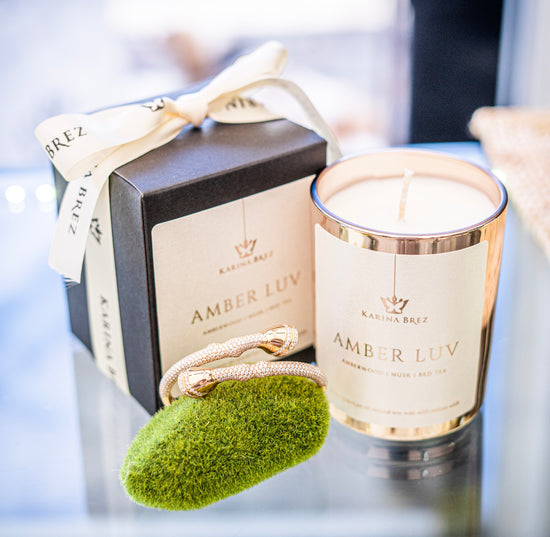For much of their initial history, Arabian horses lived outdoors in the desert environments of the Middle East and surrounding Eurasia region. They lived near their owners, which helped to develop an independent temperament that features disposition that was naturally positive and approachable.
Some prized mares were often kept in the tents of their owners to protect their value. That’s because the value of the horse often brought status to the family. This caused the horses to be around children and families, creating a working relationship that offers most within this breed to have a good temperament.
Arabians are so well-tempered, in fact, that they are only one of a handful of breeds that the United States Equestrian Federation allows children to use when exhibiting stallions. Virtually all show ring classes are allowed with this breed.
Arabian Horses Are a Hotblooded Horse
Despite their even temperament and ability to work well with families, children, and those with a physical or developmental disability, they are also a hotblooded horse. This means their temperament is also quite spirited even with its overall refinement. Arabians are intelligent horses that allow them to learn good habits quickly, but that also means they can learn bad habits just as quickly.
There is also a certain level of sensitivity that can be found within the breed. Most Arabians have a natural tendency to cooperate with humans, but that cooperation goes away if they feel that they are being treated poorly. The Arabian will not tolerate any training practices that it deems to be abusive or inept. In response, a greater level of anxiety tends to develop within a horse who perceives a lack of experience or skill rather than a shift toward viciousness.
This is where the close proximity to humans over the centuries has helped to stabilize the personality of the breed. They may be bred for spirit and speed, but Arabians are also highly responsive and tend to forgive easily if there is a positive intent behind the actions that someone might take. Their spirit tends to be funneled into an action rather than a behavior, which is why they are such a good horse for children who are interested in the equine world.
\nFoot perfect 😀 #endurancegb #arabianhorse pic.twitter.com/TL6ZCvjJwe
— TAJ (@TAJperformance) March 12, 2017
Arabian Horse Temperament Can Have Wide Variability
On average, the temperament of the average Arabian horse is going to be fairly calm and cooperative. Most are going to be very willing, especially if there are frequent activities that are given to them on a regular basis. Younger Arabians tend to be more spirited than older horses, but there is still a certain gentleness to their actions, considering the fact that they are a hotblooded breed.
There are some Arabians, however, that can have more spirit than normal. This may happen for a variety of reasons.
- They may have been given high levels of independence in the past, but are now rebelling against less independence in their choices now.
- They may have been kept in a stall without any social contact with other horses or humans for a prolonged period of time.
- They may be naturally high-spirited and attempting to dominate the relationship between human and horse.
When there are high spirit levels within the temperament of the Arabian, then the horse can be somewhat difficult to control. Most Arabians will recognize when they are around children, but this is not always the case when there are high spirit levels. That is why it is important to find the right horse to work with before assuming what the temperament of the horse is going to be.
The fact is that in every horse breed, there will be individuals that do not match up with the stereotypes that people have for them. That is why evaluating each horse and forming a close relationship are important steps to follow. Once a horse has time to establish behavioral habits, it becomes difficult to change their temperament over time. It’s tough to teach an old horse new tricks.
Health Issues Which Can Change Arabian Horse Temperament
Arabian horses have several unique physical characteristics that make them stand out from a genetic standpoint. This breed has 17 ribs, for example, instead of the 18 ribs that most horse breeds typically have. Arabians also have one fewer lumbar vertebra and one fewer tail bone compared to other breeds. Their skin is also always black, no matter what their coat color happens to be, because of their initial desert environment conditioning in their early history.
These physical traits have helped to develop a horse that works well with virtually everyone. It has also developed the potential of several genetic diseases or disorders that can affect Arabian horse temperament at times.
Some of the disorders affect the coordination and balance of the horse, such as Cerebellar Abiotrophy. Physical issues, such as OAAM, cause the cervical vertebrae to become fused, which can cause an injury to the spinal cord or discomfort and pain for the horse. Arabians can also be affected by a form of epilepsy.
Whenever a physical condition causes discomfort for the horse, there is the potential of having the temperament of the horse change. Medication can help to treat some of these conditions. In severe instances, a surgery may be required to correct the condition. If the temperament of an Arabian is positive, but then changes to negative, then this can be a strong indication that it is time for a veterinarian review.
\nCharge through the week with #arabianhorse #mondaymotivation #poweredbyforageplus of course 😘💕🐴 pic.twitter.com/sCAJU1PyX1
— forageplus (@forageplus) February 27, 2017
It’s the Rider’s Job to Know the Horse
Because Arabians tend to be horses with high spirit levels, their attitudes can be somewhat irritating – especially to someone who may not have a lot of horse experience. If the rider becomes irritated with an Arabian, the sensitive nature of this breed will detect that irritation and respond in kind. That’s why it is the rider’s job to know the horse and respond appropriately so that it becomes possible to get the most out of the horse.
Unfortunately, many see Arabians as willing and gentle horses, with a temperament that is similar to a coldblooded horse. This causes them to treat this breed in a way that isn’t always liked by the horse. In return, the horse treats the human in a way that isn’t always liked as well. This pushing and pulling eventually leads to confrontations, which damages the relationship, and that can cause the horse to become rebellious, even if its natural inclination is to be cooperative and friendly.
Arabians have been living around humans for thousands of years. They are energetic, but they are also kind. With the right experience, getting to know the Arabian horse temperament really is something that anyone can do.




